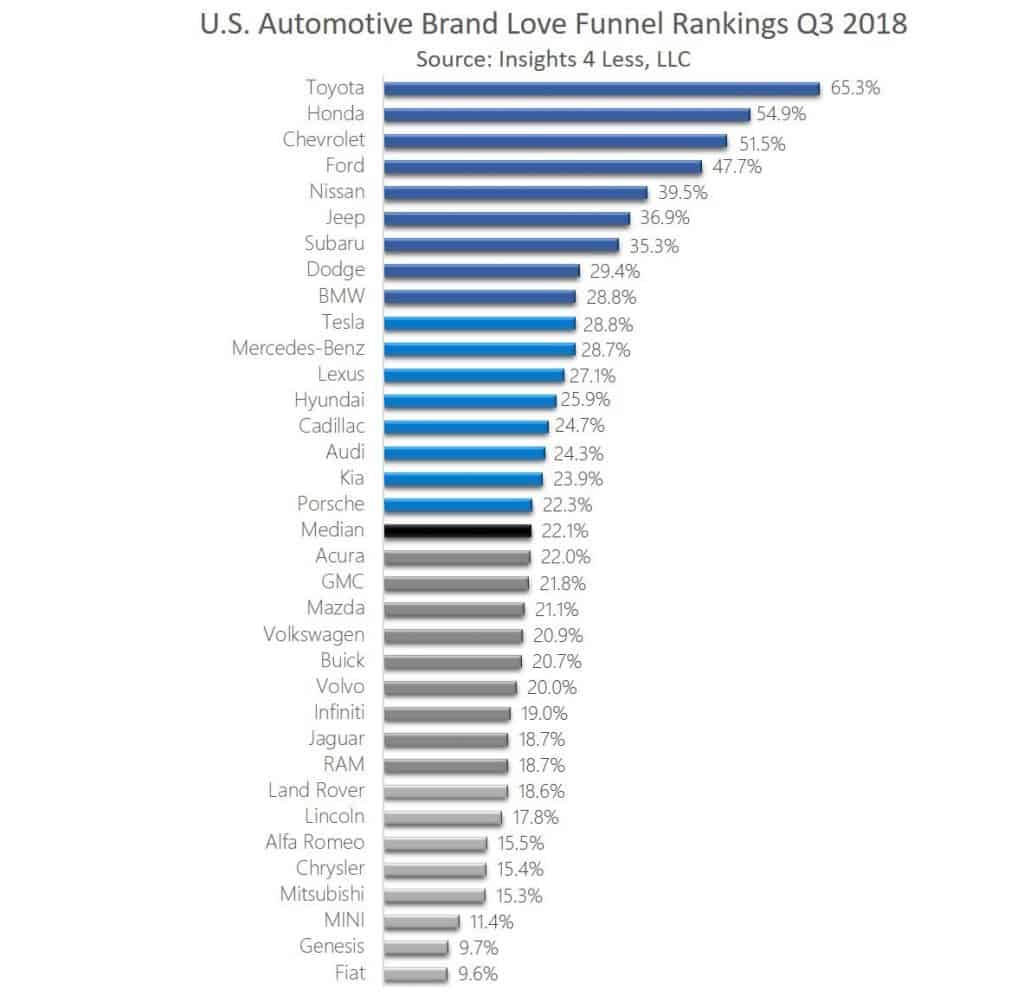 What brand car do consumers love the most? Toyota according to Brand Love.
What brand car do consumers love the most? Toyota according to Brand Love.
“When consumers love a brand, they want to buy that brand and be a part of its brand experience. Toyota’s Brand Love leadership explains why Toyota sales remain at leadership levels,” according to Mike Weil, President of Global Automotive Research at Insights 4 Less, LLC. Once a brand becomes an industry sales leader, there is significant pressure to maintain that position, which relies heavily on the strength of the consumer-brand relationship. Brand Love Funnel insights are specifically designed to help brands understand how to nurture this relationship and support sales more naturally.
Following are some of the study’s key findings:
- Toyota (65.3%) ranks highest overall on Brand Love and is supported by a complete line-up of cars, trucks, and SUVs. Honda (54.9%), Chevrolet (51.5%), and Ford (47.7%) maintain their respective positions this year as second-, third-, and fourth-most Loved brands in the 2018 Brand Love Funnel rankings.
- Nissan (39.5%) moves into the top five for the first time and now closely follows Ford. Jeep (36.9%) and Subaru (35.3%) move up three positions, while Dodge (29.4%) increases four positions.
- The majority of Luxury Brands lose momentum in this year’s study. BMW (28.8%) falls four positions, Mercedes-Benz (28.7%) slips by three, and Lexus (27.1%) tumbles five spots. The Brand Love Funnel Study also measures demand for new vehicles. Demand for new Luxury vehicles also slipped nine-tenths of a point, from 15.2% in 2017 to 14.3% in 2018. The remainder of demand going to Non-Luxury brands.
- Kia (23.9%) made the most notable gain in the Brand Love rankings, moving up eight spots. Kia is now stronger than the industry mid-point (22.1%) and is closing in on its sister brand, Hyundai (25.9%).
- Mazda (21.1%) and Volkswagen (20.9%) both improve in the Brand Love rankings, moving two positions closer to the industry mid-point.
The study is based on the responses of 1,260 U.S. New Vehicle intenders.
The study was fielded from 17 – 26 September 2018.